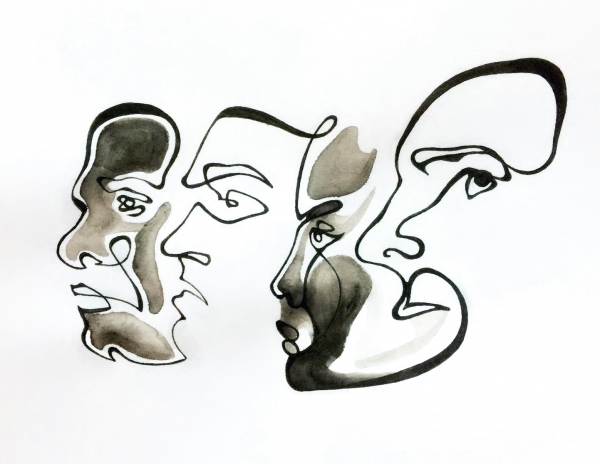On Oct. 23, an English professor at the University of Western Ontario used the n-word while describing terms that were historically used to refer to certain classes of slaves. The nonchalant use of a word with such violent historical and current implications was justifiably met with outrage by Black students in the lecture hall who felt deeply humiliated and angered. In addition to this offense, the professor claimed that he used the n-word was to “get a reaction” from students. This is a dangerous statement because it plays into a historical narrative that has disregarded the position and sensitivity of Black people. Further, it serves as a prime example of the ways in which academic spaces continue to exist as racialized spaces, where historical realities can manifest in damaging ways.
Academia often prides itself on being neutral and unprejudiced, an environment where anyone, from any background, can engage in the dissemination and acquisition of knowledge. This neutrality often serves to actively ignore the ways in which racialized people are misunderstood and misrepresented within this supposedly all-inclusive intellectualism. In bringing the need for representation to the forefront, the Black Students’ Network of McGill (BSN) has proposed a Black Students’ Bill of Rights as a way of advocating for the rights of Black students. This would act as an essential step forward towards broader institutional recognition of the ways in which the black experience at McGill is marginalized.
The Black Students’ Bill of Rights highlights the barriers that Black students face at McGill, including a lack of representation within the teaching and professional staff, microaggressions, physical and online harassment, racial profiling and various forms of verbal discrimination. This bill also aims to suggest ways in which McGill can better accommodate the equal existence of Black students by first recognizing the distinct experiences and needs of Black students on an institutional level.
“In bringing the need for representation to the forefront, the Black Students’ Network of McGill (BSN) has proposed a Black Students’ Bill of Rights as a way of advocating for the rights of Black students.”
Following the incident at Western, it is clear that the conception of academic spaces as sterile and welcoming to all is far from an all-encompassing reality. This incident serves to remind us of why a Black Students’ Bill of Rights is needed, especially one that specifically considers the daily challenges Black students face while navigating an academic space such as McGill. It is also important in outlining the appropriate steps McGill can take to better cater to the needs of Black students both presently and in the future.
In making sure that this Black Students’ Bill of Rights is as comprehensive as possible, BSN called for a town hall on Oct. 22. It focused on discussing the barriers that Black students face at McGill, as well as using an online consultation form to collect feedback from Black students regarding their experiences in general. BSN proposes that this Bill of Rights will create an institutional structure which will allow Black students to better advocate for their needs on campus and it will also aim to hold the McGill administration accountable to its commitments to Black students.
Since McGill’s founder, James McGill, was a slave owner, the very history of McGill’s inception is tied to anti-Black racism. For example, until 2017 McGill did not officially celebrate Black History Month, despite the month being recognized by the House of Commons in 1995. Considering the university was established in 1821, that marks 196 years of institutional disregard for Black students and Black history, again reinforcing the need for a Black Students’ Bill of Rights.
“Since McGill’s founder, James McGill, was a slave owner, the very history of McGill’s inception is tied to anti-Black racism.”
Academia, and more specifically McGill, has a role in ensuring that feelings of marginalization and ostracization are reduced for all its students, especially those of racialized backgrounds. The Black Students’ Bill of Rights serves as an important step towards creating an academic space that is truly inclusive and accommodating of the challenges Black and racialized students face. However, this should not be seen as a singular and temporary push for Black students rights under the guise of inclusivity, but rather as a demand for continuous institutional introspection over how to commit to the welfare of marginalized students.









